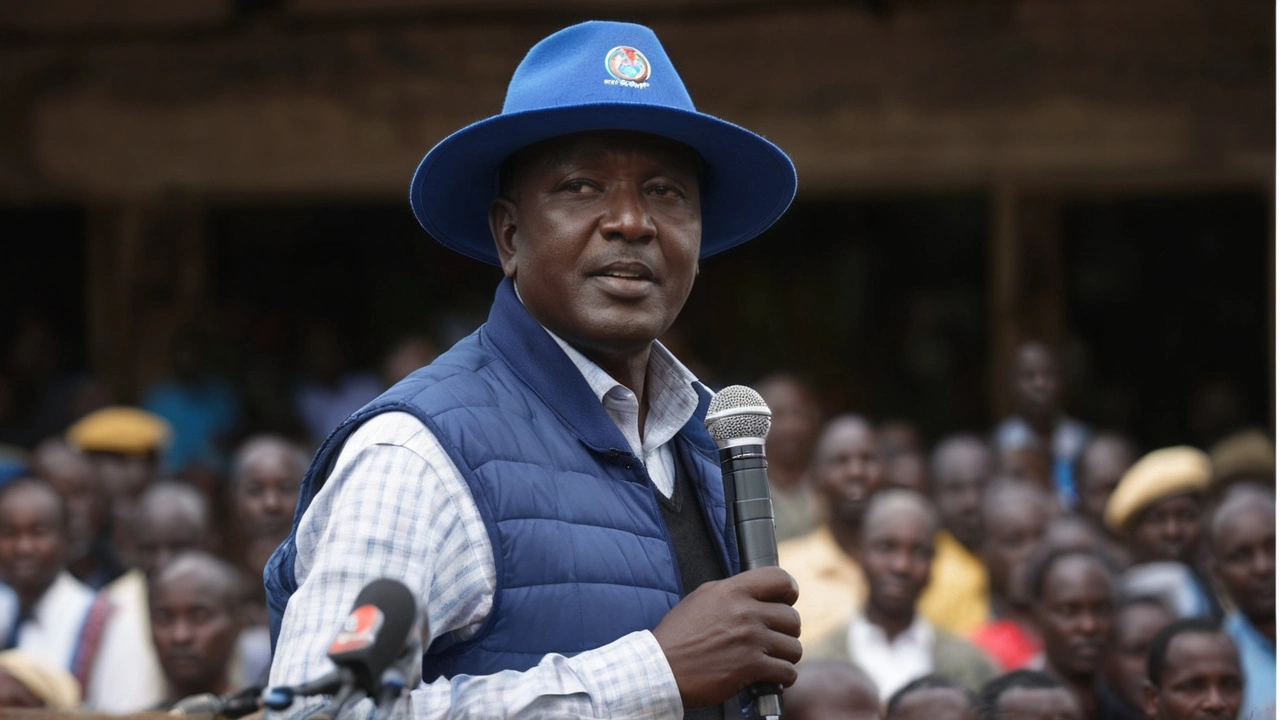President Ruto Nominates Raila Ally for Key East African Community Role
In a bold strategic move, President William Ruto has nominated Dr. John Ng'asike, a former Turkana County Executive Committee Member for Roads, Transport, and Public Works, as Kenya's ambassador to the East African Community (EAC). This decision heralds not only a critical shift in Kenya's political landscape but also signals a burgeoning relationship aimed at bridging the divide with the opposition, represented by Raila Odinga.
Dr. John Ng'asike is no stranger to the intricacies of Kenyan governance and regional diplomacy. Having served under the leadership of Governor Josphat Nanok in Turkana County, Dr. Ng'asike has garnered extensive experience in infrastructural development and public administration. His tenure as an executive committee member was marked by significant advancements in transportation and public works, setting a professional precedent that he is now poised to extend to the broader East African region.
Political Implications and Unity
The nomination of Dr. Ng'asike holds profound political significance. As a close ally of Raila Odinga, a formidable opposition figure, his selection is a clear message from President Ruto about his intent to foster unity and bipartisan cooperation. This alliance could open avenues for smoother governance and create a more cohesive national agenda, which is crucial for Kenya's socio-economic development.
Raila Odinga's endorsement of Dr. Ng'asike's capabilities further underscores the potential for cross-party collaboration. By nominating someone from the opposition camp, President Ruto is setting a precedent for inclusive governance. This move could mitigate entrenched political rivalries, fostering an environment where policies are evaluated on their merit rather than political affiliation.
The Role of the East African Community (EAC)
The EAC is a vital intergovernmental organization comprising seven member states: Kenya, Tanzania, Uganda, Rwanda, Burundi, South Sudan, and the Democratic Republic of Congo. Its core mission is to enhance economic, political, social, and cultural integration among member states. Dr. Ng'asike’s potential appointment as Kenya’s envoy is a strategic decision aligned with Kenya’s broader regional objectives.
Kenya’s role within the EAC framework is pivotal. As one of the leading economies in the region, Kenya's influence and leadership are crucial in steering the collective agenda towards shared goals of prosperity and stability. Dr. Ng'asike’s appointment is expected to invigorate this role, leveraging his administrative acumen and strategic insight to further strengthen ties between member states.
In terms of economic integration, the EAC countries stand to benefit significantly. By enhancing cross-border trade, harmonizing economic policies, and fostering a common market, the EAC aims to uplift the socio-economic standards within the region. Dr. Ng'asike's background in infrastructure development could provide the necessary impetus to accelerate projects that bolster connectivity and accessibility between these nations.
National Assembly's Role
Dr. Ng'asike’s nomination is subject to rigorous scrutiny and approval by Kenya's National Assembly. This process will involve a comprehensive evaluation of his credentials, vision for the EAC, and his potential to navigate the complex dynamics of regional diplomacy. If approved, Dr. Ng'asike will not only represent Kenya but also embody the country's commitment to regional integration and development.
The National Assembly's approval process will serve as a litmus test for Dr. Ng'asike's ability to garner bipartisan support. Given his close ties with Raila Odinga and the opposition, it will be interesting to observe the deliberations and the eventual outcome. A favorable decision would underscore the National Assembly's collective endorsement of a unified approach towards enhancing Kenya's role in the EAC.
Future Prospects and Expectations
Assuming Dr. Ng'asike's nomination is approved, his role will be instrumental in shaping the future trajectory of the EAC. His primary responsibilities will include fostering cooperation and collaboration between member states, advocating for Kenya's interests, and promoting policies that ensure mutual benefit. His background in public works and transport will be particularly valuable in driving initiatives that facilitate easier movement of goods and people across the region.
Furthermore, Dr. Ng'asike will need to address existing challenges within the EAC framework. Issues such as trade barriers, political instability in some member states, and divergent economic policies require astute diplomacy and strategic problem-solving. His success in these areas could significantly enhance the EAC's functionality and its appeal as a model for regional integration.
Conclusion: A Step Towards Inclusive Governance
President William Ruto's nomination of Dr. John Ng'asike as Kenya’s ambassador to the EAC is a commendable initiative towards inclusive and cohesive governance. By extending an olive branch to the opposition through this strategic appointment, President Ruto is paving the way for a united front in addressing both national and regional challenges. Dr. Ng'asike's anticipated role in the EAC promises to be a harbinger of strengthened ties and shared growth among the East African nations.
As the National Assembly prepares to deliberate on this nomination, the focus will undoubtedly be on Dr. Ng'asike's vision for regional integration and how his leadership could bolster Kenya's standing within the EAC. If endorsed, his appointment could mark a significant milestone in Kenya's diplomatic endeavors, fostering a legacy of unity, cooperation, and progressive development.


Jacquelyn Barbero
August 1, 2024 AT 20:13toby tinsley
August 2, 2024 AT 06:46Chris Richardson
August 3, 2024 AT 10:50Mark Archuleta
August 4, 2024 AT 05:19Pete Thompson
August 5, 2024 AT 20:49Richard Berry
August 7, 2024 AT 02:20Sandy Everett
August 7, 2024 AT 17:51J Mavrikos
August 9, 2024 AT 03:05Stuart Sandman
August 9, 2024 AT 19:16DJ Paterson
August 11, 2024 AT 04:52Robert Shealtiel
August 12, 2024 AT 13:46Marrissa Davis
August 12, 2024 AT 20:39